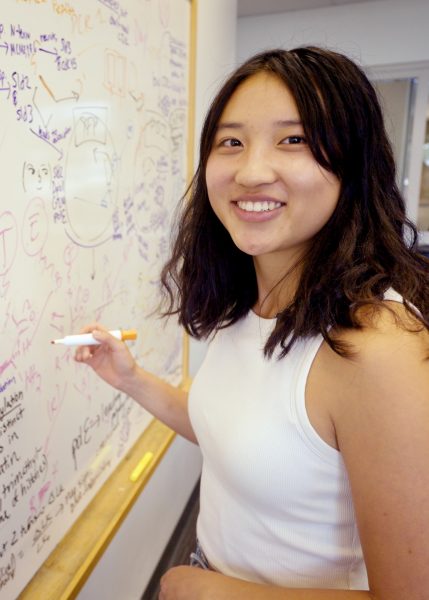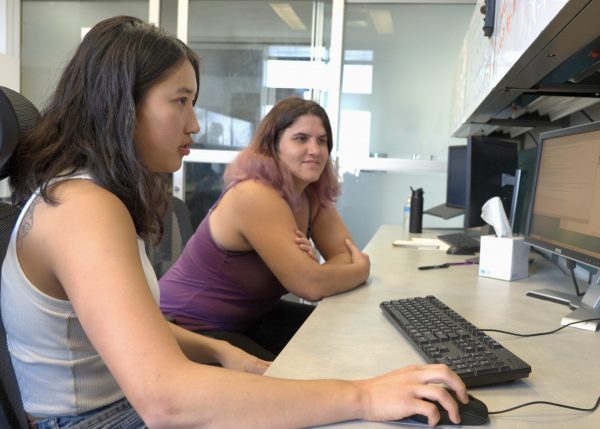By Amy Wolf
Today’s fight against infectious diseases is being waged in the computer lab as much as the wet lab. Using artificial intelligence and machine learning, Vanderbilt researchers and students like School of Engineering undergraduate Karen Pu are expanding the power of computer modeling to identify mutating viruses—and potentially improve vaccines.

When the Northern California native started her first year at Vanderbilt, she wanted to jump into biology research. Then COVID restrictions led to a pivot, steering Pu into an exciting area of biomedical research that uses computer coding and artificial intelligence.
 This area of study also created opportunities for her to travel across the world and dive into an interdisciplinary Immersion Vanderbilt project.
This area of study also created opportunities for her to travel across the world and dive into an interdisciplinary Immersion Vanderbilt project.
“Since COVID my freshman year had us spending more time on our computers, I took a Python coding class and thought, ‘Why don’t I try combining my interest in biology with computer science?’” she said.
Pu reached out to the bioinformatics lab of Jens Meiler, Distinguished Research Professor of Chemistry within the College of Arts and Science.
“I saw that the Meiler Lab offered the opportunity to do computational biology research, and it sounded really cool when I read what they were doing with drug discovery and designing proteins,” she said.
Pu has been working in the Meiler Lab since her initial outreach freshman year with Assistant Professor of Chemistry Cristina Martina as her mentor.

Martina uses her expertise in protein engineering to work toward the development of antibodies and vaccines in the labs of Meiler and of Dr. James Crowe, University Distinguished Professor of Pediatrics and of Chemistry, Ann Scott Carell Professor and director of the Vanderbilt Vaccine Center.
“I’ve adopted a structure-based approach to designing antibodies and vaccines, particularly against viruses like influenza and the Marburg virus, which is the cousin of Ebola,” Martina said.
Martina’s work around the flu virus is where Pu’s Immersion Vanderbilt project comes in.
Pu is expanding on an existing project started by a Ph.D. student that uses machine learning techniques and an innovative computational modeling software called Rosetta to help predict protein structure changes in the flu virus.
“I used Rosetta as a way to evaluate the data that the machine learning model predicted. More specifically, Rosetta was used to evaluate the viability of the virus mutants that that model predicted,” she explained.
Ultimately, Pu’s immersion work could help identify the next strain of the flu.